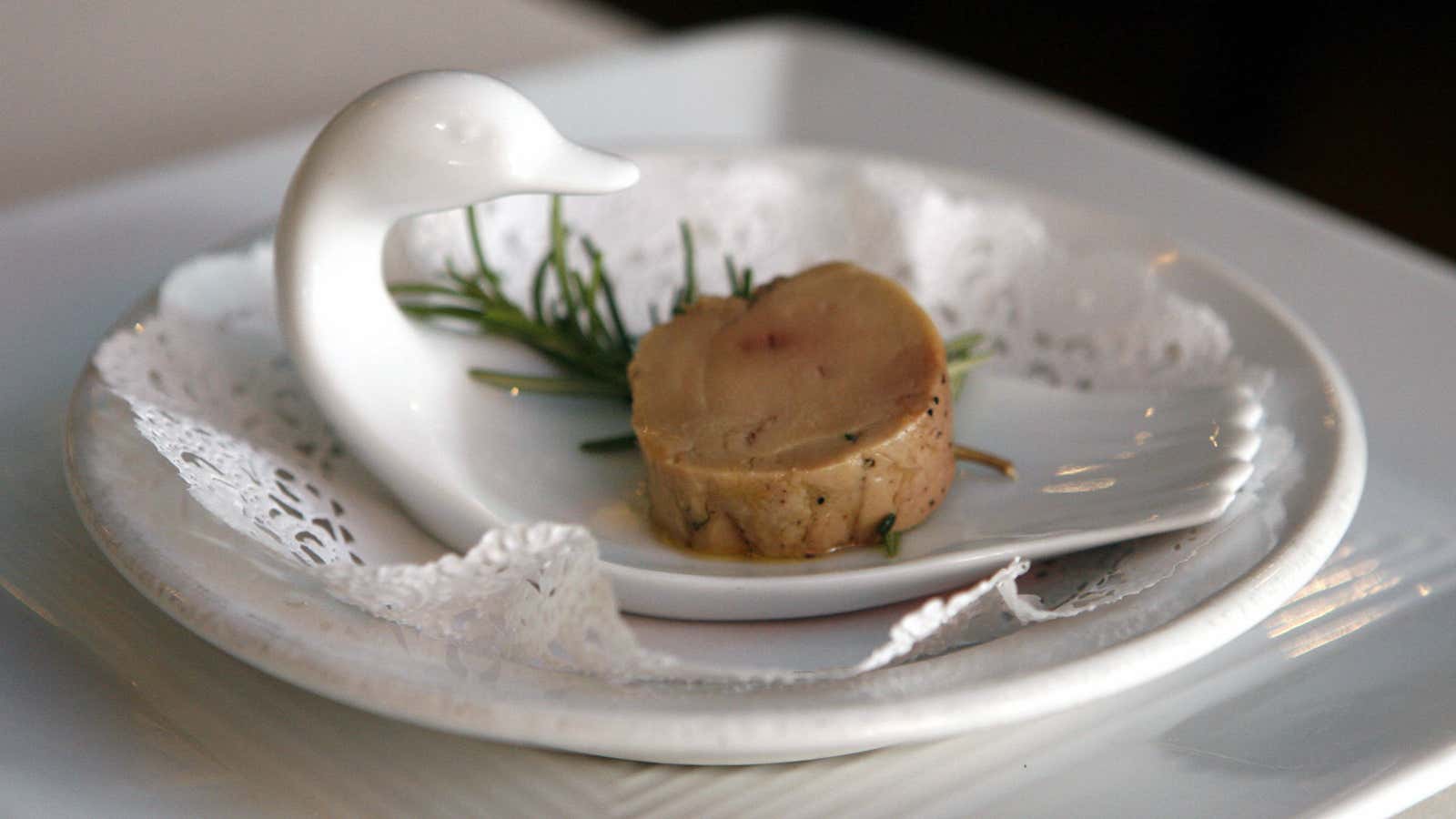Few foods inspire such visceral debate as foie gras, the fatty duck or goose liver that’s prized by foodies but hated by animal advocates because it’s often produced by force-feeding the birds until their livers become enlarged.
In January, a California judge struck down the US state’s ban on foie gras, sending the state’s chefs into a tizzy of excitement. (California’s attorney general plans to appeal.) Now the debate is happening in European Parliament. Five members of the European Parliament (MEPs) have complained that the food’s production is inhumane, and are calling for it to be banned in all of Parliament’s “‘restaurants and catering outlets in Brussels, Strasbourg and Luxembourg,'” Politico reports. The issue will be considered at a Parliament committee meeting on Tuesday.
But it won’t be an easy fight: French MEPs are prepared to stick up for foie gras, which is predominantly made in France. “I will defend foie gras at whatever the cost,” Elizabeth Morin-Chartier, a French MEP from the European People’s Party and a member of the committee considering the ban, told Politico. “We are not going to be as stupid as those who like to offend their most treasured cultural heritage.”
In 2014, approximately 25,000 tonnes (or about 27,500 tons) of foie gras were produced in Europe, creating 50,000 jobs, according to Euro Foie Gras, the European Federation of Foie Gras Producers whose stated objective is “to defend the foie gras business.”
The delicacy—which can sell in the US for more than $50 a pound—is loved by chefs for its rich, melty texture. Meanwhile, animal welfare activists say that the practice known as “gavage,” or force-feeding to fatten the birds’s livers, amounts to torture. The force-feeding is done by inserting metal feeding tubes in the birds’ throats and then pouring food down the tubes. The liver becomes engorged with the fat, and when the bird is slaughtered, it is sold at a premium price. (Some farms don’t force-feed their birds to make foie gras. At La Pateria de Sousa in Spain, for example, the birds migrate and feed freely from the farm’s plant life.)
The pro-foie gras set point out that the migratory birds’ livers naturally accumulate fat to store energy for the food-scarce winters, and that their throats are lined with a tissue that makes it possible to swallow wriggling fish or worms—or feeding tubes—without much hardship.
Production and/or sale of foie gras is highly regulated around the world. In Australia, for example, production is illegal but the food can be imported. In India, meanwhile, imports are illegal.
